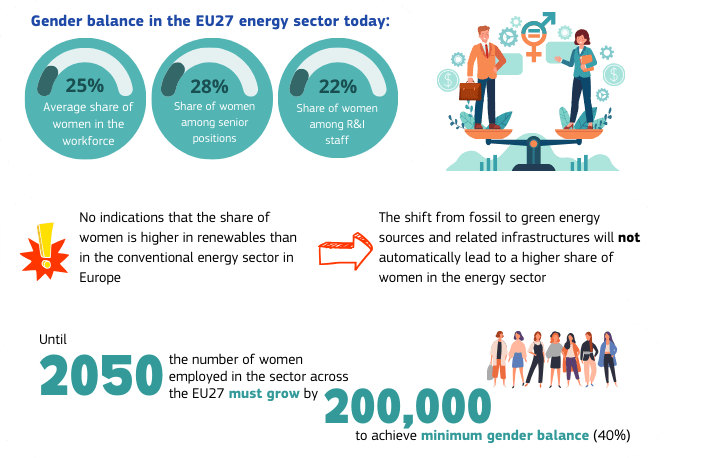eSkills & Work
Fostering talent is key to competitiveness and to employment. We help exploit innovation in skills enhancement, design organisational innovations and help policy and private sector clients to match education and training with technological development and evolving requirements of learners and employers.
eLeadership
e-Leadership skills enable people with very strong ICT skills to lead qualified staff from ICT and other disciplines towards identifying and designing business models and exploiting key innovation opportunities. e-Leadership is successful where an organisation makes best use of new developments in ICT, where leading edge ICT drives innovation and delivers value to their organisations. We analyse the creation and the demand for e-leadership skills. Together with industry and leading European universities and business schools we develop guidelines and curriculum profiles to adapt existing courses or develop new ones. The guidelines are continuously updated and offered to the market by empirica. A number of universities and business schools from all over Europe has used curriculum profiles to carry out a self-assessment and mapping of courses and programmes, helping them to adapt to technology trends, learner demand and industry requirements and become fully fledged e-leadership courses. We offer online tools to support the entire process of course mapping to curriculum profiles and the execution of a self assessment on which to base course and programme developments and adaptations. Universities use these tools as guidance for developing new e-leadership courses. The approach has also been adapted to best suit the needs of SMEs and entrepreneurs and several renowned universities and business schools are using it to conduct, further develop and adapt their offers to better address this market.
Strategies & Governance
The provision of strategy and policy advice has been one of to the core activities in the skills and work domain at empirica for more than 30 years now. Starting back in the 1980s we have been active in developing and implementing new ways of working in a large number of insurance companies, banks and other service organizations. In the Middle East, we recently developed a national policy strategy in this domain. It is being continued by the implementation of new ways of ICT-based working especially for women in several large corporations in the oil & gas industry, financial and telecommunications sector but also ministries as a means to bring the growing number of well educated women in the Arabic world into jobs and the employment market.
Further services offered by empirica include the development and implementation of measures for the continuous employment of older workers. In this area we are carrying out projects with large globally operating companies in the financial service like Deutsche Bank, or insurance companies such as Continentale but also companies from the IT sector like SAP.
For the Federal German government and with the ‘Forum Info 2000’ empirica established stakeholder dialogues in several domains including skills and work and supported policy development for paving the way of Germany towards the information society. Similar services are carried out and offered to other national governments and stakeholders.
For already more than 10 years we are supporting different DGs at the European Commission in policy development and the implementation of suitable governance structures run by different actors in areas relating to digital literacy, e-skills and e-leadership skills. These take many different formats and include for instance the development and activities relating to the implementation of governance models for the operation of European e-skills quality label awarding and related online services and tools with a series of relevant European stakeholders. These activities have been expanded towards the e-leadership domain.
Monitoring and forecasting
We have a long track-record in the skills and work monitoring, benchmarking and forecasting domain with the first empirical European level monitoring activities on telework and e-Work dating back to the mid-1980s and e-skills related monitoring and forecasting starting in the 1990s.
Already in 1998 empirica was the first research and consulting organization worldwide to develop a European online monitoring and benchmarking web portal on e-Work and e-Commerce (Benchmarking Progress on Electronic Commerce and New Methods of Work). Besides the empirical data for monitoring and benchmarking progress throughout major European countries and the USA the portal offered a repository of around 100 best practice case studies and a series of policy-related recommendations. These activities have been and are being continued, results made available through different web portals and these remain to be unique in the world.
We have continuously developed and refined the methodologies for empirical measurement of demand and supply and forecasting. The results are used intensively for policy and strategy development and continue to constitute a basis for policy decision-making for governments and for industry including national governments and the European Commission but also large corporations operating globally. The monitoring and benchmarking services are offered on a continuous basis to policy and strategy development decision-makers at European and national level and decision makers in large, globally operating corporations.
Education and training
Empirica service provision and activities in the ‘training and education’ domain range from partnerships with top-level universities and business schools – including for instance IE Business School, INSEAD, Henley Business School, Technical University Munich, St. Gallen University to name just a few – to support the development of new and innovative ICT, business and leadership related higher and executive education courses and programmes to the development and provision of executive training material for briefing and training high-level executives in large corporations operating globally. Further Europe-wide partnerships and service provision activities include those addressed to stakeholders from industry, associations of different type, education institutions, examination, certification and accreditation institutions but also national and European standardization bodies for the development of industry-based certification and quality labels as well as related award procedures and institutional and governance structures and online support tools.
Empirica has become a well recognized Europe-wide service provider and expert in this rapidly developing domain and market with a continuously growing number or partnerships and assignments over the past years.
New ways of working
Implementation of innovative models for the employment of an increasingly diverse workforce, making smart use of flexible forms of work organisation in terms of working space and time, can help boost a company’s performance while at the same time offering employees improved work-life balance.
We develop, support and moderate processes aiming at the implementation of new forms of work organisation and employment in companies and public administrations. These activities range from topics like “employment models for an ageing and older workforce” to “mobile working / smart working “.
empirica has thirty years of Europe-wide experience in investigating trends and advice on how to implement new, ICT-enabled trends in work. Organisations like SAP, Deutsche Bank, Sparkasse Frankfurt, insurance companies like Continentale, Barmenia, Deutscher Herold, Zürich, Württembergische, Signal Iduna, HDI, daughter companies of European banks like Societe Generale and further organisations from the service sector but also national governments including those from countries like Qatar in the mid-East and large corporations in this region are among our customers in this area. In the latter we are developing and implementing new ways of ICT-based working especially for women in large corporations from the oil & gas industry, the financial, telecommunications and public sectors as a means to bring the growing number of well educated women in the Arabic world into jobs and the employment market.
Repeated representative surveys in Europe and a large number of case studies carried out since the early 1980’s round off this empirical basis.
empirica also develops sound analyses and concepts for policy measures for all aspects of innovative forms of work and regularly organises national and international conferences, workshops and seminars bringing together experts from industry, policy, the social partners and academia.

